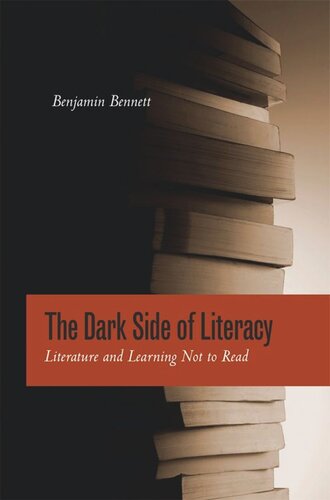

Most ebook files are in PDF format, so you can easily read them using various software such as Foxit Reader or directly on the Google Chrome browser.
Some ebook files are released by publishers in other formats such as .awz, .mobi, .epub, .fb2, etc. You may need to install specific software to read these formats on mobile/PC, such as Calibre.
Please read the tutorial at this link: https://ebookbell.com/faq
We offer FREE conversion to the popular formats you request; however, this may take some time. Therefore, right after payment, please email us, and we will try to provide the service as quickly as possible.
For some exceptional file formats or broken links (if any), please refrain from opening any disputes. Instead, email us first, and we will try to assist within a maximum of 6 hours.
EbookBell Team

4.1
70 reviewsReading is good for us. The reading of literature, we are told, enlarges our horizons, extends our experience beyond our own lives. But the moral and political dangers that attend the association of reading with experience have long been understood. And is that association even valid? What if precisely our most important literary texts are constructed so as to challenge or disrupt it? This book is a radical criticism of the concept of "reading," especially of the concept of "the" reader, as commonly used in literary criticism. Bennett starts with the point that "reading" does not name a single, identifiable type of experience or class of experiences. Her then sketches in broad terms the historical provenance of "the" reader, in an argument that includes discussions of Dante, Boccaccio, Cervantes, Marlowe, and German idealist philosophy. In two concluding chapters on modern German novellas, he suggests that most major European literary works since the eighteenth century are written in direct opposition to the central concepts by which criticism has sought to lay hold of them.